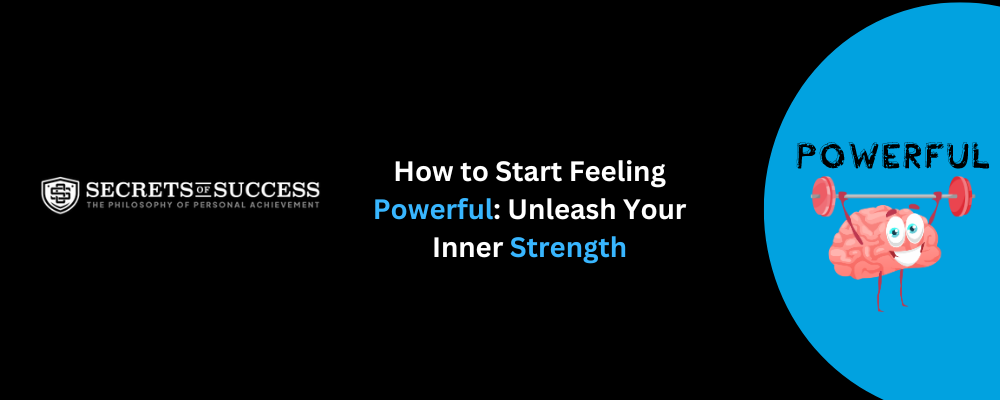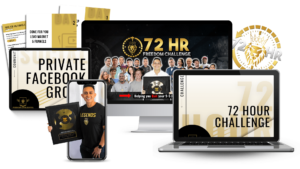Feeling powerful is not just about physical strength or dominating others; it’s about harnessing your inner potential to navigate life with confidence and purpose. In this article, we’ll delve into practical strategies to help you tap into your personal power and cultivate a mindset of strength and resilience.
Understanding Personal Power
What is Personal Power?
Personal power refers to the ability to influence outcomes, make decisions, and take action in alignment with your values and goals. It’s about owning your strengths, embracing your uniqueness, and asserting yourself authentically in the world.
The Importance of Personal Power
Having a sense of personal power is crucial for achieving success and fulfillment in life. When you feel powerful, you’re more likely to pursue your dreams, overcome obstacles, and handle challenges with grace and confidence.
Cultivating Personal Power
Self-Awareness and Reflection
Start by getting to know yourself on a deeper level. Reflect on your values, strengths, and areas for growth. Journaling, meditation, and self-assessment exercises can help you gain clarity about who you are and what you want.
Setting Clear Goals
Identify what you want to achieve in different areas of your life, whether it’s career advancement, personal growth, or improved relationships. Set specific, measurable goals that inspire and motivate you to take action.
Building Confidence
Confidence is a cornerstone of personal power. Cultivate confidence by challenging self-limiting beliefs, practicing self-compassion, and celebrating your successes, no matter how small.
Assertiveness and Boundaries
Learn to assert yourself respectfully and set healthy boundaries in your interactions with others. Communicate your needs, opinions, and boundaries clearly and assertively, without apologizing for who you are.
Overcoming Obstacles
Dealing with Fear and Doubt
Fear and doubt are natural parts of the human experience, but they don’t have to hold you back. Challenge irrational fears, reframe negative thoughts, and take small steps outside your comfort zone to build resilience.
Handling Criticism and Rejection
Criticism and rejection are inevitable in life, but they don’t define your worth or abilities. Learn to separate constructive feedback from personal attacks, and use criticism as an opportunity for growth and learning.
Perseverance and Resilience
Resilience is the ability to bounce back from setbacks and adversity. Cultivate resilience by cultivating a positive mindset, practicing self-care, and seeking support from friends, family, or a mentor.
Conclusion
Feeling powerful is not about controlling others or external circumstances; it’s about embracing your own strength, authenticity, and resilience. By cultivating self-awareness, setting clear goals, building confidence, and overcoming obstacles, you can unleash your inner power and create a life of meaning and fulfillment.
FAQs
1. How long does it take to start feeling powerful?
Feeling powerful is a journey that varies for each individual. It depends on factors such as self-awareness, mindset, and personal circumstances. With commitment and dedication to personal growth, you can start feeling more powerful over time.
2. Can anyone develop personal power?
Yes, personal power is not limited to a select few; it’s accessible to anyone willing to put in the effort to cultivate it. Regardless of your background or current circumstances, you have the potential to tap into your inner strength and unleash your personal power.
3. What are some practical exercises for building confidence?
Practical exercises for building confidence include setting and achieving small goals, practicing self-affirmations, visualizing success, and stepping outside your comfort zone regularly. Consistent effort and self-compassion are key to building lasting confidence.
4. How do boundaries contribute to personal power?
Boundaries are essential for protecting your time, energy, and emotional well-being. By setting and enforcing healthy boundaries, you assert your worth and value, and create space for authentic connection and self-expression.
5. How can I overcome fear of failure?
Overcoming fear of failure involves reframing your mindset, embracing failure as a natural part of learning and growth, and focusing on the lessons and opportunities that come from setbacks. By shifting your perspective and taking action despite fear, you can gradually diminish its hold over you.
Stop Listening When People Say This: A Guide to Ignoring Negative Advice




